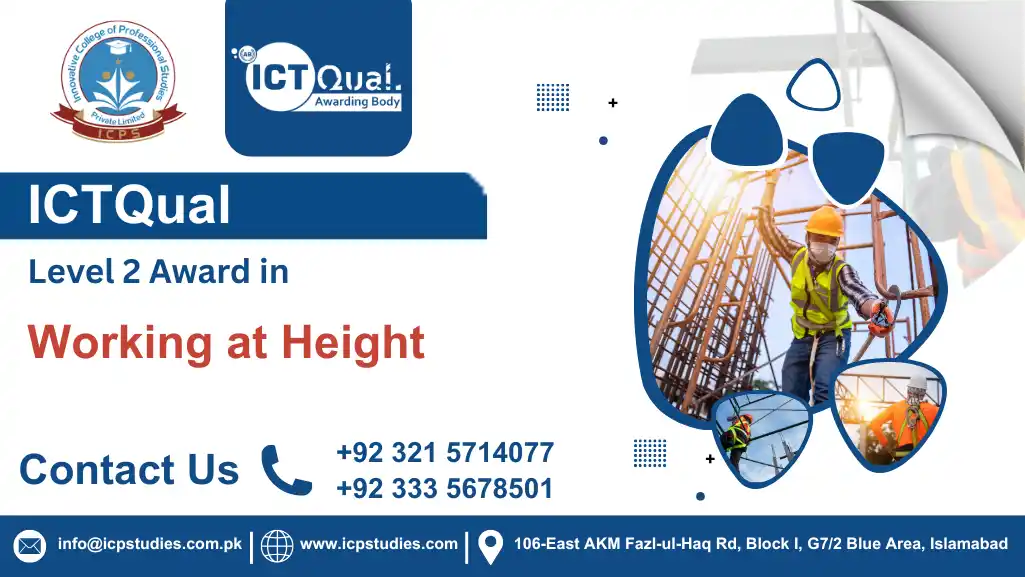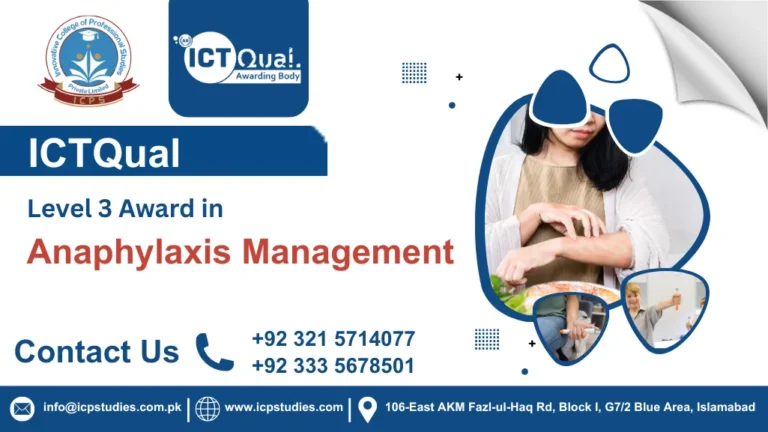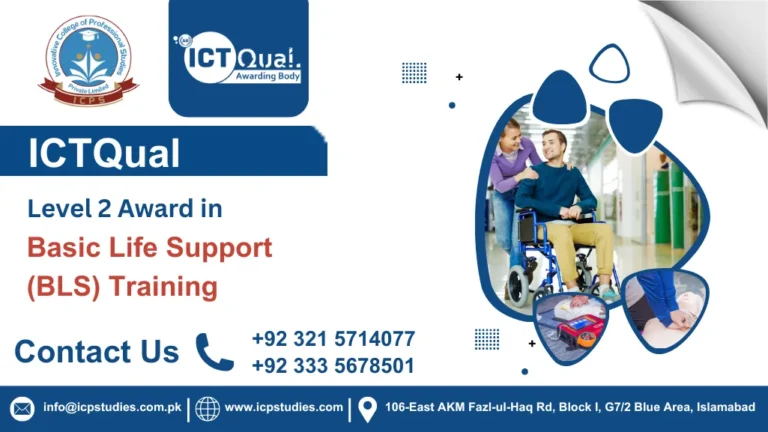The ICTQual Level 2 Award in Working at Height is a practical and safety-focused qualification designed to equip individuals with the essential knowledge and skills required to work safely at height in various environments. Falls from height remain one of the leading causes of serious workplace injuries, making this course vital for anyone operating in sectors such as construction, maintenance, telecommunications, and industrial services. This award meets recognised safety standards and regulatory requirements, ensuring that both workers and employers fulfil their legal and operational duties. The course helps reduce the risks of falls, ensures compliance with health and safety legislation, and builds a strong foundation for workplace competence in high-risk environments.
The ICTQual Level 2 Award in Working at Height focuses on developing awareness and understanding of the hazards and risks associated with working above ground level. It provides learners with the knowledge to assess, plan, and execute work at height tasks safely while complying with current legislation and workplace practices. Learners will explore the use of appropriate fall prevention and protection equipment, risk assessments, emergency procedures, and employer responsibilities. The course combines theoretical instruction with practical application, helping participants to build confidence and capability in real-world scenarios.
The ICTQual Level 2 Award in Working at Height is more than just a safety course—it is an essential qualification that empowers workers to perform their roles responsibly and confidently. By promoting safe practices and regulatory compliance, this course contributes to safer working environments across a wide range of industries. The ICTQual Level 2 Award in Working at Height is a valuable qualification for anyone who performs or supervises tasks at height. It is a key investment for both individual career development and organisational safety standards. Whether you are entering the workforce or are a seasoned professional seeking formal certification, the ICTQual Level 2 Award offers foundational competence in height safety procedures.
All About ICTQual Level 2 Award in Working at Height
Course Overview
The ICTQual Level 2 Award in Working at Height is a safety-critical qualification designed for individuals who perform tasks above ground level across various industries. With falls from height remaining one of the most common causes of workplace injuries and fatalities, this course equips learners with the essential knowledge and practical skills to work safely and responsibly in elevated environments.
The ICTQual Level 2 Award in Working at Height focuses on hazard recognition, risk assessment, and the correct use of fall prevention and protection equipment. Participants will also learn about legal obligations, emergency procedures, and best practices aligned with current health and safety regulations. Whether using ladders, scaffolding, mobile platforms, or working on roofs, learners will gain the confidence to identify and control risks effectively.
Delivered to meet UK professional and industry standards, the ICTQual Level 2 Award in Working at Height is ideal for workers and employers looking to enhance safety culture and compliance within high-risk sectors. It supports organisations in meeting legal duties while improving operational safety and employee wellbeing.
Suitable for construction workers, maintenance staff, telecom engineers, and others in similar roles, this award enhances employability and demonstrates a commitment to safe working practices in any environment where working at height is required.
Study Units
- Introduction to Working at Height
- Risk Assessment and Hazard Identification
- Equipment Selection and Usage
- Fall Prevention and Protection
- Safe Working Practices
- Legislation and Regulations
- Emergency Preparedness and Response
To ensure learners can successfully participate in and benefit from the ICTQual Level 2 Award in Working at Height, the following entry requirements apply:
Minimum Age
Learners must be at least 16 years old at the time of enrolment.
Educational Background
There are no formal educational qualifications required. However, a basic understanding of workplace health and safety principles is beneficial.
Work Experience
Prior work experience in construction, maintenance, or any field involving work at height is helpful but not essential. The course is suitable for both beginners and those seeking to formalise their safety knowledge.
Language Proficiency
Learners should have basic proficiency in English, including reading and understanding instructions, safety signs, and assessment materials. This ensures they can fully engage with course content and complete any required evaluations.
The ICTQual Level 2 Award in Working at Height is designed for a broad range of individuals who are required to work above ground level as part of their job responsibilities. This course is ideally suited for:
- Construction workers, scaffolders, and roofers involved in tasks at elevated levels
- Maintenance and facilities staff responsible for accessing high areas within buildings or structures
- Telecom and utility workers operating on towers, poles, or overhead lines
- Window cleaners and signage installers working on platforms or ladders
- Health and safety officers who supervise or assess working-at-height procedures
- New entrants to high-risk industries who require foundational training in height safety
Whether you are entering a new role or aiming to improve safety awareness in your current position, this course ensures that you have the essential skills and knowledge to work safely and comply with workplace regulations.
Learning Outcomes
Introduction to Working at Height
- Understand the definition and scope of working at height
- Recognise the importance of height safety in various industries
- Identify the potential consequences of unsafe practices
Risk Assessment and Hazard Identification
- Conduct basic risk assessments for working at height tasks
- Identify common hazards associated with elevated work environments
- Apply control measures to minimise risks effectively
Equipment Selection and Usage
- Select appropriate equipment for specific height-related tasks
- Demonstrate correct usage and inspection of ladders, scaffolds, and access platforms
- Understand maintenance and storage requirements for safety equipment
Fall Prevention and Protection
- Distinguish between fall prevention and fall protection methods
- Use personal protective equipment (PPE) such as harnesses and lanyards correctly
- Understand anchor points and fall arrest systems
Safe Working Practices
- Apply safe procedures when working at different heights and conditions
- Maintain awareness of surroundings and co-worker safety
- Ensure proper setup and stability of working platforms
Legislation and Regulations
- Understand key legal responsibilities under UK health and safety law
- Recognise employer and employee duties related to height safety
- Comply with relevant workplace policies and national standards
Emergency Preparedness and Response
- Prepare for emergencies related to working at height
- Implement effective rescue and response plans
- Communicate clearly during emergency situations and follow reporting procedures
FAQs ICTQual Level 2 Award in Working at Height







